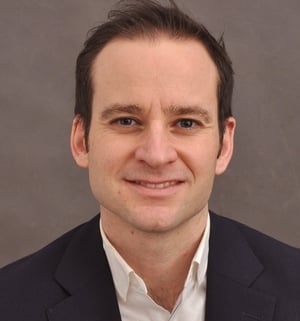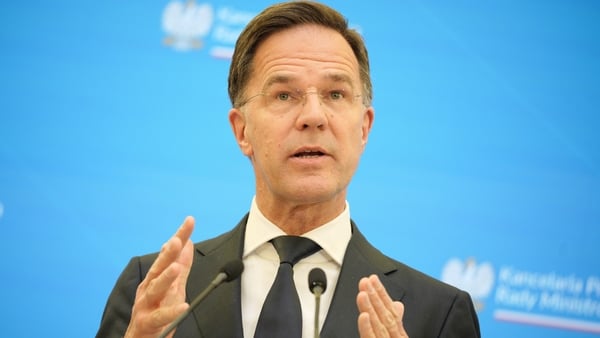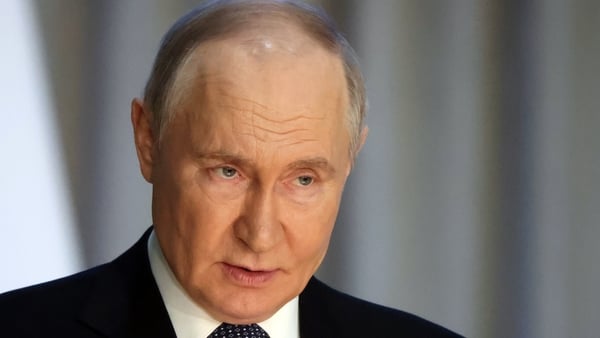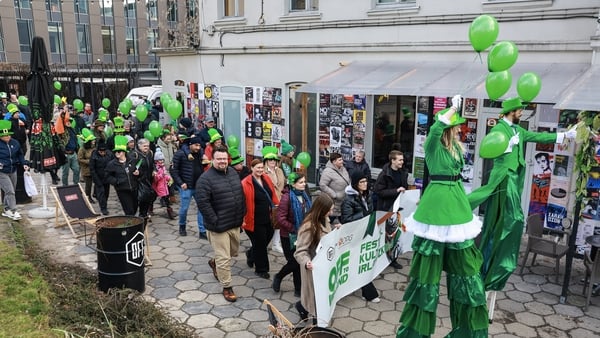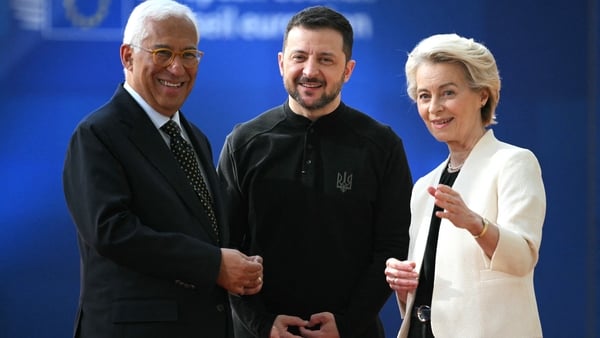Protestors have gathered in Istanbul for a mass rally in support of the city's mayor Ekrem Imamoglu, who was arrested by authorities on 19 March on charges of alleged corruption and supporting terrorism, which he denies.
Today's rally, organised by Turkey's main opposition party, the secular Republican People's Party (CHP), follows 10 days of protests in Istanbul and other Turkish cities.
Mr Imamoglu was detained just four days before he was due to be declared as the CHP's candidate for Turkey’s next presidential election in 2028.
His supporters believe his arrest was politically motivated in order to prevent him from opposing Recep Tayyip Erdogan, Turkey's long-serving autocratic president.
"Imamoglu is the one Turkish politician who is most likely to defeat Erdogan in the country’s next presidential race," Soner Cagaptay, an expert on Turkey at the Washington Institute, told RTÉ News.
Mr Imamoglu’s arrest, he said, showed that Turkey is becoming "purely authoritarian" and that Mr Erdogan was now "picking who could oppose him".
During the week, police in Istanbul cracked down on protesters for not dispersing after the conclusion of nightly speeches by opposition politicians at rallies, though the protests have largely been peaceful.
Protesters are demanding the release of Mr Imamoglu and for early elections to be held.
Almost 1,900 opposition supporters have been arrested in cities across Turkey since protests began on 20 March, according to Turkey’s interior ministry, which also says that 150 police officers have been injured during clashes.

Police tactics have been heavy-handed, using pepper spray and water cannon against protesters, with some officers filmed kicking people.
Mr Erdogan has labelled the past nine days of street protests - the largest in Istanbul for more than a decade - as "evil" and has criticised the CHP for starting a "violent movement".
Turkey's government has denied that the arrest of Mr Imamoglu was politically motivated and has insisted that the judiciary is independent.
As the protests continue, there is no sign that Turkey’s president intends to back down and give in to the protesters’ demands.
He remains popular among supporters of his AK party, the largest in Turkey, which for more than two decades has thrived on a blend of conservatism, nationalism and Islamism.
Mr Imamoglu had managed to appeal to voters beyond his party’s urban secular base, said Asli Aydintasbas, a former journalist for CNN Turk, now a visiting fellow at the Brookings Institution in Washington DC.
"He appealed to Kurds as well as conservatives, even peeling off important constituencies from Erdogan’s base. So I think that made him a huge threat to President Erdogan, more of a threat than any other opposition politician," Ms Aydintasbas told RTÉ News.
That broad appeal has been reflected in nightly protests over the past week in Istanbul.
Those who have taken to the streets are a mixed group of nationalists, leftists and centrists, including many young people, disenchanted with their country’s direction, democratic backsliding and the Turkey's sluggish economy.
The country's annual rate of inflation stood at 39% in February.
As evidence of Mr Imamoglu’s popularity, last Sunday, 13 million people cast their ballots for him to be the CHP's presidential candidate - an astonishing show of support considering that Turkey is not in the midst of an election campaign this year.
However, maintaining momentum for daily protests will be difficult.
"I'm not sure that the CHP will be able to maintain this level of enthusiasm for two or three years. This is a marathon for the opposition, not a sprint," said Ms Aydintasbas.

(Pic: Turkish Presidency/Murat Kula/Handout)
The protests may face another more immediate hurdle.
On Wednesday, Mr Erdogan declared an extra three days of public holidays to celebrate Eid, the Muslim festival marking the end of Ramadan.
Normally, the annual break lasts for three days but with this year's three additional public holidays, and Eid falling over two weekends, it means that public workers will have all nine days off work.
Whether intended by state authorities or not, the extended Eid holiday will mean that more people will be away the from the big cities next week as they visit families in their home regions, and that could further take the sting out of the protests.
But protest movements, by their very nature are unpredictable, and there is a chance that they could still increase in size.
As well as organising today's mass rally in Istanbul, the CHP has also called on Turks to boycott companies that support Mr Erdogan.

Rock solid support for the protesters' demands from the United States or the European Union looks unlikely too.
Neither Washington nor Brussels have strongly criticised the arrest of the leading opposition politician and the heavy-handed tactics used by police to disperse protesters, though some European leaders, like French President Emmanuel Macron, have voiced concerns.
Last week US President Donald Trump called Mr Erdogan "a good leader".
In 2013, during the last mass opposition protests in Istanbul, EU officials had criticised heavy force used by police against demonstrators.
But today's security situation in Europe means the bloc is approaching Turkey more diplomatically.
Turkey has the second largest army of any NATO member after the US and has a large defence industry - both useful assets for Europe as it bulks up its defence industry and tries to put a peace monitoring mission in place in Ukraine.
A Turkish contingent as part of a future monitoring force would be more palatable to Russia, which so far opposes the idea of European peacekeepers in Ukraine.
"Turkey matters in terms of pushing back against Russia in the Caucasus and in the Black Sea region in Eastern Europe," said Ms Aydintasbas.

And then, there is the role of Turkish media, most of which is pro-government and critical of the protests.
Authorities have moved to muzzle independent media coverage of the protests, fining independent Turkish broadcasters and arresting at least 13 Turkish journalists so far. Most have been released.
One pro-opposition television channel received a ten-day broadcasting ban by the country's media regulator.
During his 22 years in power, first as prime minister and then as president from 2014, Mr Erdogan, has clamped down on media freedoms, making Turkey one of the worst places in the world to be a journalist.
Reporters Without Borders, a media watchdog, ranks Turkey as 158th out of 180 countries on its press freedom index, and estimates that 90% of the country's media is controlled by the government.
Such outlets peddle the government's version of the protests.
Without much access to the airwaves, the protesters have to rely heavily on social media and grassroots messaging to spread the word.
But social media in Turkey is not an island of freedom either.
Since the protests began, Turkish authorities have requested social media platform X, formerly Twitter, to suspend over 700 accounts belonging to opposition figures, which X duly declined.
Politico reported earlier this week that some X accounts belonging to student activists had been blocked in Turkey only.
And, on Thursday, BBC News correspondent Mark Lowen was deported by Turkish authorities after being detained by police for 17 hours.
Turkish authorities said he had "being a threat to public order", according to a statement from the BBC.
In reality, Mr Lowen had interviewed protesters at demonstrations as part of his reporting.
There is one outside factor that could influence Mr Erdogan to relent in his pursuit to crush the protests: the markets.
"It's the key factor to watch," said Mr Cagaptay, adding that the markets are "the one dynamic over which Erdogan has no control."
During the first few days of the protests, Turkish stocks performed at their worst level since the 2008 financial crisis, an indication that investors were concerned about the country's stability.
Authorities will want to quell the protests quickly before investors sense any chance for longer-term economic instability, a scenario that could force the government to sell off more of its foreign currency reserves.
Organisers of today's planned mass rally in Istanbul will be counting on a large turnout to sustain momentum for the current movement.
But if the numbers are lower than expected, the protests could fade away during the holiday season amid a barrage of criticism from state-controlled media and Mr Erdogan.

